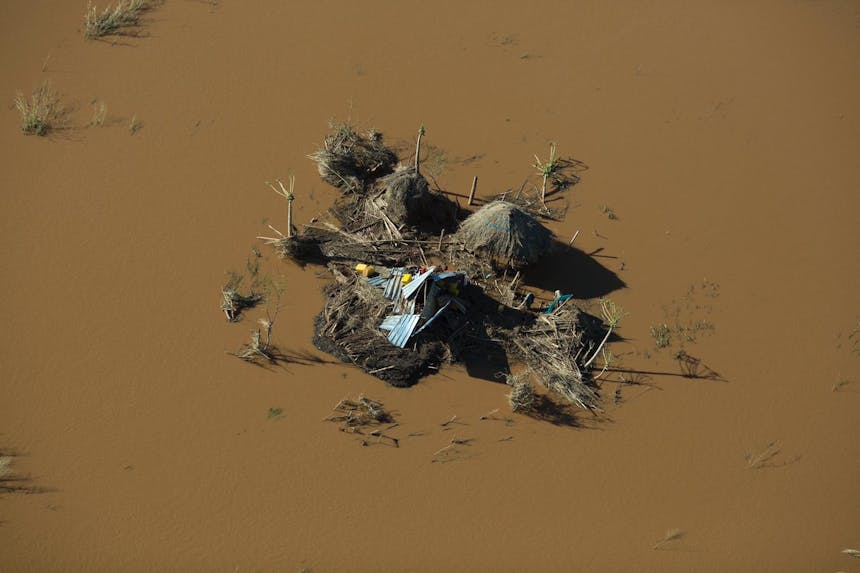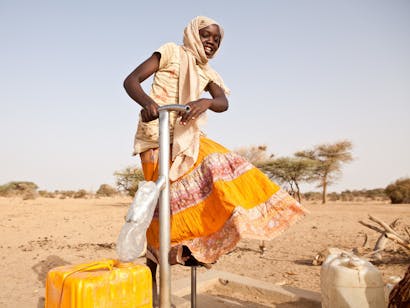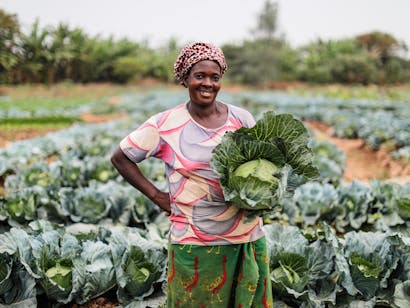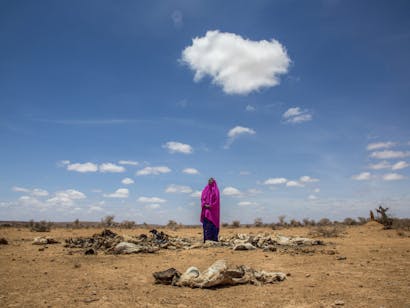Hollow Commitments report
G7 countries have no plan to deliver on climate finance pledges.

- Behind the public promises, CARE’s new report ‘Hollow Commitments’ shows that recent climate finance plans from developed countries are weak and unpredictable
- Analysis of 24 plans shows not a single rich country provided information on what they considered to be their fair share of the $100 billion target, or how and when they would deliver it
- Only three of the 24 countries demonstrate any planned finance increase, and the increase is not big enough to close the gap of at least $20 billion to meet the $100 billion target
The Hague, Netherlands, June 3 – Rich countries’ latest climate finance plans still fall short of the $100 billion target they committed to in 2009 and contain a woeful lack of detail, predictability or clarity regarding delivery and timeline for future funds, analysis from CARE has found. CARE has analyzed the most recent official finance plans that developed countries submitted under the Paris Agreement and found that despite vocal pledges of support for vulnerable countries from the G7 and other wealthy nations, the actual information submitted by all 24 assessed donors falls well short of what was requested and is nowhere near a roadmap that ensures rich countries deliver on their climate finance commitments.

John Nordbo, senior climate advisor from CARE Denmark and one of the report authors said:
“Over ten years ago, rich countries agreed to take some sort of responsibility for their climate damaging high emissions and collectively committed to raise $100 billion per year in additional funding from 2020 for climate adaptation and mitigation in developing countries. Reprehensibly, these wealthier nations have not cared enough about their commitment to the world’s poorest people and nations to deliver clear plans for delivering these funds in the next years. The lack of substance in their climate finance plans could contribute to a breakdown in trust that puts this year’s negotiations and COP26 outcomes at risk. When G7 leaders meet they must put concrete increases on the table and take responsibility for developing a roadmap that ensures developed countries’ climate finance obligations are met.”
Recent reports show that we are not yet on track to limit global temperature increase to 1.5 degrees and avoid the worst impacts of the climate crisis, impacts which will take a devastating and disproportionate toll on least developed countries and small island developing states. Many of these countries are already experiencing an increase in both slow and sudden-onset climate shocks, from desertification, food insecurity and drought to extreme weather events, flooding and pest invasions. The increase in frequency and severity of these events is making it challenging for countries to recover from one to the next, let alone adapt or build more long-term resilience, as exemplified in India last week. The Paris Agreement stipulates that developed countries must provide climate finance and seek a balance between support for mitigation and adaptation. Currently, only 25 percent of international climate finance is spent on adaptation and CARE’s new report shows that a 50/50 balance remains out of sight, with only two countries (Ireland and New Zealand) recognizing that adaptation objectives are severely underfunded and stating they will target adaptation over mitigation in the coming years.

Additional findings:
- No G7 country offered climate finance in addition to meeting UN development aid commitments.
- Only one G7 country (UK) made clear commitments to prioritize vulnerable countries.
- Not a single rich country provided detailed quantitative information outlining the support it would provide for least developed countries (LDCs) and small island developing states (SIDS).
- See also enclosed G7 climate finance overview table.
Chikondi Chabvuta, Southern Africa Advocacy Lead with CARE Malawi, said:
“We cannot continue losing lives due to this injustice. It is quite shocking that almost six years into the Paris Agreement countries are still not living up to their promises on funding climate action, when the impacts are being felt so severely by poor nations. Developing nations are experiencing an increased frequency and magnitude of disasters and are unable to cope, let alone thrive. If no clear finance roadmap is in place, poor countries will continue registering deaths from climate induced disasters and the world will continue to be unequal, because this is not just about numbers, it is also about people’s lives. Women and children especially are facing the worst of the impacts. Climate finance should not come as part of Official Development Aid, which is urgently needed to fight poverty, but must be additional and targeted for adaptation and loss and damage.”
According to the OECD, wealthy countries’ support for climate action in developing countries is at least $20 billion below the $100 billion a year they committed to over a decade ago. This means there is an urgent need for them to deliver increased climate finance in the near future.
CARE’s Hollow Commitments report provides a detailed analysis of all submissions from 24 countries and ranks them on a points system. Luxembourg and Sweden top the table but there is still room for improvement in their ex-ante reporting, with both countries only scoring around half of the possible points. At the bottom of the table, five countries received no points at all (Austria, Greece, Japan, the Czech Republic and Slovakia) indicating that their reports are extremely poor.
A further 11 countries obtained only a quarter, or less, of the possible points. This group includes countries such as Denmark, the Netherlands and Norway, countries which usually picture themselves as leaders in international development.


